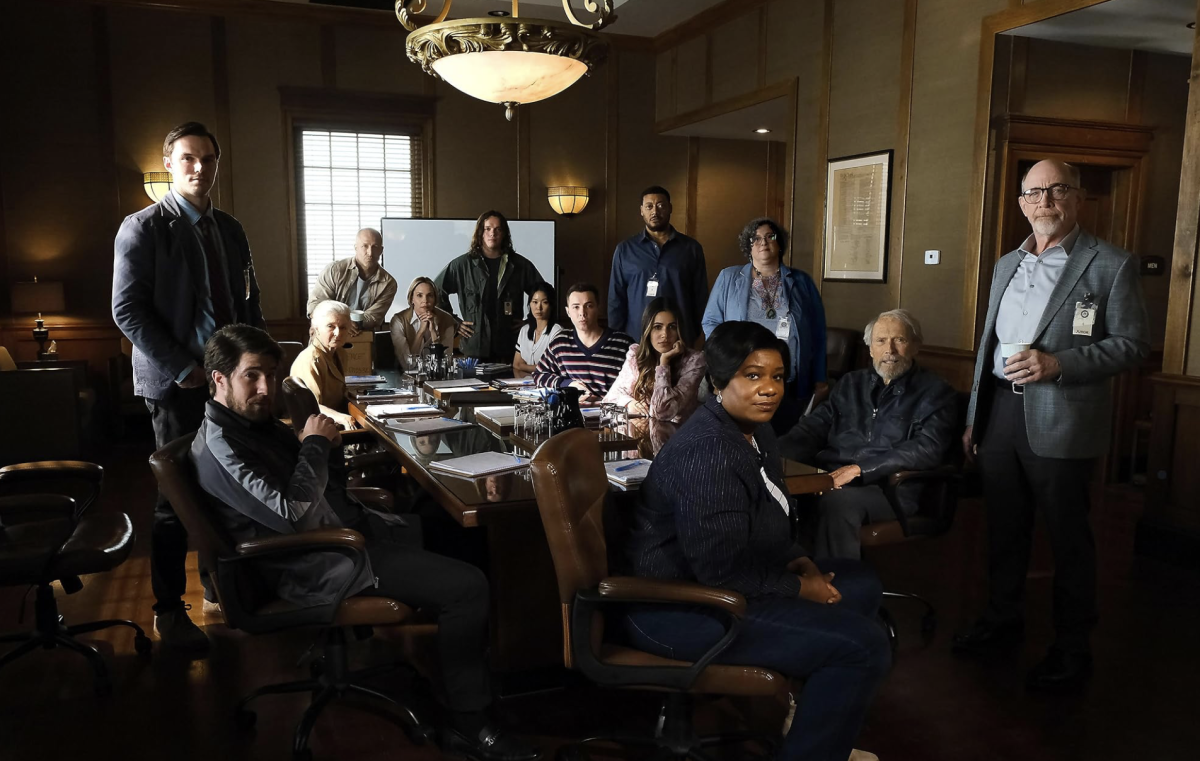“To the justice system. It ain’t perfect. But it’s the best we got.” So proclaims a defense attorney in Clint Eastwood’s latest courtroom drama “Juror #2.” At 94 years old, the acclaimed Hollywood actor-director has worked on a plethora of thematically rich and wildly popular films that provide a unique perspective on the American experience — be that on post-war trauma as in “American Sniper” or on controversial public figures like the titular characters of “Richard Jewell” and “Sully.” “Juror #2” cements itself as a worthy addition to Eastwood’s filmography, combining a riveting narrative with timely commentary on the faith we place in our institutions.
The film follows Justin Kemp (Nicholas Hoult), a recovering alcoholic who gets selected for jury duty. Hoping for a quick trial so he can return home to his pregnant wife Allison (Zoey Deutch), Justin’s ethics are tested when he realizes that he is accidentally responsible for the murder that’s being tried. Justin butts heads with prosecutor and aspiring district attorney Faith Killebrew (Toni Collette) as he tries to convince his fellow jurors to acquit whilst not outing himself as the true culprit.
Hoult’s acting is the star of the show as he encapsulates the demeanor of a man racked with guilt who’s desperately trying to make the best of a bad situation. He’s simultaneously conniving, vulnerable and someone to empathize with — an impressive feat. During an argument with Allison in the film’s second half, Hoult’s eyes dart around anxiously as he stares unblinkingly with his lips frozen shut.
Such intricate expressions are only matched by those of Hoult’s co-star Collette. She expertly portrays an initially righteous character whose faith in herself whittles away as the film goes on. Though her attempt at a Southern accent leaves a good deal to be desired, the rest of Collette’s performance does not disappoint. With every head shake and eyebrow raise, you feel the hunger for justice that her character grows to embody.
But “Juror #2” calls our innate desire for justice into question. Will the revelation of truth always lead to justice? In Justin’s case, turning himself in would be truthful but would tear an otherwise good man away from his family. Meanwhile, the defendant, a historically violent man — who is admittedly innocent of this crime — would be set free. Is that justice? While we contemplate these questions, the film prompts us to reconsider our unwavering faith in the judicial institution. How much trust should we place in them to get things right?
In the wake of the recent 2024 presidential election, disillusionment with governmental systems — be they the justice system or the electoral process — is a sentiment many can relate to. Additionally, it has only been three months since the state of Missouri’s execution of Marcellus Williams, which went forward despite opposition from the prosecutor in his case. In the months since, more and more Americans have grown distrustful of our justice system and the way it seems to consistently prosecute suspects without sufficient evidence.
Though there are mostly great moments, “Juror #2” is not without its faults. A number of the supporting performances feel phoned-in or, at the very least, not fully developed. Gabriel Basso as the defendant and Cedric Yarbrough as one of the jurors seem unenthused and insincere in scenes that should have been show-stealing moments for them. Luckily, Hoult, Deutch and Collette — combined with a far-too-short cameo from J.K. Simmons — manage to balance everything out.
It’s unfortunate that Warner Bros. decided to limit the theatrical release of “Juror #2,” as the film is a true crowd-pleaser. With its narrative reminiscent of a John Grisham novel and its commentary ringing true in today’s political landscape, the film will hopefully usher in a return to the courtroom dramas of the 1990s. But even if it doesn’t, “Juror #2” is still a narratively engrossing, politically relevant hell of a watch.
Contact Leo Field at [email protected].


























































































































































